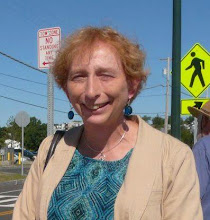First, many say how can one remain a Catholic in light of such evil by priests and the failure of the hierarchy to address these evil acts. To that I say that many don’t understand what faith and “being part of the Church means.” Faith does not come from the institutional church or the hierarchy. Faith is a free gift from G-d. The true meaning of “the Church” is the assembly of the believers, NOT the hierarchy institutional church. The purpose of pastors, bishops and others in formal roles in the intuitional church is to be faithful servants. Their authority only exists to the extent they remain faithful servants. When they fail, they are not the true Church. But the faithful believers remain the true Church even when the hierarchy fails.
In this regard, these evil acts and failures to act do not shake my faith or beliefs. I see clearly that evil represents grievous offences before G-d. And the Church is my Church and NOT that of the hierarchy and priests that failed their duties to G-d and the people of the Church.
Second, the acts of sexual abuse are mortal sins, grievous offences against G-d and G-d’s people. Only once have I heard a priest or other official of the Church use the term “sin,“ which is accurate, not some lesser term like “failing’ or “lax” or some other term that diminishes the seriousness of the sin. Once discovered, it was the duty of the hierarchy to realize the sins, and the life-long devastation it has caused to G-d’s little ones.
The hierarchy then failed to take proper action. The Act of Contrition speaks of “avoiding the near occasion of sin.” The hierarchy needed to realize that the only way to keep pedophile priests away “the near occasion of sin” was to remove them from ministry and from any contact with minors. And that their priests need to turn themselves over to civil authorities to faces the due punishment for the civil crimes they committed. This is the correct action that anyone familiar with the old Baltimore Catechism would have realized.
At this point, if the institutional church can’t regulate itself, there needs to be at least an oversite board that investigates and takes proper actions:
- All pedophile priests and others who committed sexual abuse must be immediately removed from ministry and “de-frocked”.
- They must turn themselves over to civil authorities and be prosecuted to the full extent of the law.
- Ditto for all in authority who failed to act or covered it up or took improper actions (e.g., moving around priests to other parishes)
- The investigations and prosecutions must extend up the chain to the Vatican if that’s where the trail leads.
- States should revise laws to extend the Statute of Limitations to ensure prosecution of offenders
Reform
- The Institutional Church must determine the root causes. Is the vow of chastity unsustainable? Frankly, testosterone is a power drug, and can drive a boy or man to think of and perhaps act on desires that should be curbed. Having lived with both testosterone and estrogen flowing through me, I especially can testify to the power of the male hormone. I have come to believe that most men should have the opportunity to express their sexual desires in a loving consensual relationship. To be a faithful servant and a man, frankly one should not be fighting the unnatural battle that can accompany chastity. Change needs to be considered.
- There remains a need for oversight and transparency. We don’t need to know all the minor sins of those in ministry. But where there is serious sin – such as abuse – it must be called out, put in the spotlight of truth, and appropriate actions taken as I described above. If we can’t trust the institutional church and hierarchy to perform this role, perhaps a lay oversight role needs to be created.
Summary
- The acts of abuse are mortal sins and serious crimes and full prosecution and removal from ministry is necessary.
- The hierarchy that failed also needs to be removed from positions of authority and prosecuted where there is a basis for that.
- The failure to take appropriate actions undermines the moral authority of the institutional church.
- The believers have a faith that comes from G-d and not the intuitional church or hierarchy that have failed to protect the vulnerable, G-d’s little ones.

